Reconnect, Reimagine and Renew: Using a values-led approach
)
She thanked me for leaving her feeling inspired, motivated and wanting to transform the learning experience for her students and then said, 'But what should I do on Monday morning?' That's a great question because many of us feel the same way after visiting events like BETT. We can see the transformative potential; we are equally aware that the power of technology brings certain risks and it's easy to feel overwhelmed by the complexity of trying to bring about change.
I don't have a magic formula but I would like to offer a starting point. You need to consider the design of both your learning experiences and your digital ecosystem in the light of your organisational values.
A principled approach to learning design
The starting point for academic staff is the principles that underpin your learning, teaching and assessment practice. A set of principles can summarise your educational values and guide learning design. Articulated well, the principles shouldn't just describe the status quo, they should represent a call to action and a manifesto for change.
Once you articulate what really matters, you can explore what implementing each principle means in any learning context and you have an instant benchmark against which to evaluate current practice and identify key areas for change.
I worked with Jisc to produce a guide'on this topic in 2022 and I offer our seven core principles as a conversation starter to help you think about how some of the great ideas and innovative technologies you see at BETT may be adapted to enhance learning in your context.
Seven principles for good learning, teaching and assessment
- Help learners understand what good looks like'by engaging learners with the requirements and performance criteria for each task.
- Support the personalised needs of learners'by being accessible, inclusive and compassionate.
- Foster active learning'by recognising that engagement with learning resources, peers and tutors can all offer opportunities for formative development.
- Develop autonomous learners'by encouraging self-generated feedback, self-regulation, reflection, dialogue and peer review.
- Manage staff and learner workload effectively'by having the right assessment, at the right time, supported by efficient business processes.
- Foster a motivated learning community'by involving students in decision-making and supporting staff to critique and develop their own practice.
- Promote learner employability'by assessing authentic tasks and promoting ethical conduct.
Reconnecting with your core principles can help you renew your curriculum offerings by reimagining learning activities. Try it using this self-assessment.
The only real limit is your imagination. The EdTech market is thriving. Gone are the days when tools only supported the most basic learning and teaching functions. You can find tools to support a range of different pedagogic approaches and innovation at scale is now possible. If you can imagine it, you can find a tool to support it.
Creating a digital ecosystem
The Higher Education sector has taken an evolutionary approach to embracing technology, but the last few years have seen a tipping point whereby technology underpins all of our administrative processes and much of our learning and teaching practice.
The starting point for learning technologists and IT staff is, therefore, the health of your digital ecosystem. I'm using the term digital ecosystem because stand-alone systems no longer meet our expectations. We want to be able to use a range of tools as part of a connected ecosystem. The more we see the benefits of digital technologies, the more we want to work across tools and platforms in a seamless fashion.
Until recently we faced big hurdles in getting our systems to work together. Once part of a process was digitised, institutions were either committed to purchasing more and more options from the same supplier or to spending considerable time and money on developing interfaces to add further tools and functionality.
We have now reached a point where a 'plug and play' approach to combining educational technologies is a reality thanks to the work of 1EdTech: a unique community of public bodies, institutions and suppliers, whose members have developed a set of open standards that have revolutionised the EdTech ecosystem. The 1EdTech community (formerly known as the IMS Global Learning Consortium) has brought together market competitors, public policymakers and institutions to work towards the common goal of enabling a flexible digital learning ecosystem.
This brings us back to the BETT 2023 theme because, if you can reimagine your learning activities, you can renew your digital ecosystem by making use of open standards to reconnect your core systems with the additional tools and resources you need to enhance the learning experience. By using technologies that comply with open standards you are reducing risk and implementation time/cost. You can take an incremental approach and innovate in the ways that best suit your learners. Commercial products, open source and in-house developments will all fit seamlessly into your ecosystem.
Educational technologies you can trust
An open digital ecosystem is a value-driven proposition and values also come into play in other ways. Education providers have a duty of care. We need to protect our learners and the data they generate. We need to know we are using educational technologies that we can trust.
Use of open standards doesn't only avoid data being locked into proprietary systems; 1EdTech open standards go much further than this in terms of ensuring secure, privacy-safe transactions.
Aside from assuring the technical aspect of the transactions, the 1EdTech community has also developed a rubric to vet supplier privacy policies and terms of service. To date over 8,500 products have been vetted against the TrustEd Apps'rubric. The vetting process gives institutions confidence that suppliers' complex legal documents really do meet today's data privacy standards. The process is equally useful to suppliers, especially newer/smaller companies who receive guidance on the improvements necessary to meet sector standards should they fall short in any area. The community is working on a similar framework related to accessibility and equitable access that will soon be part of the TrustEd Apps suite.
These initiatives represent practical applications of wider strategic conversations taking place globally and regionally, most notably in Europe, where 1EdTech is part of a drive to ensure the publicly funded education ecosystem aligns with European values.
Looking to the future
A focus on values and dialogue around trust will be of fundamental importance in the months and years to come. Digital technology is increasingly powerful and with the many opportunities come risks.
The role of artificial intelligence (AI) in education technology and its use/misuse by students is a major preoccupation at the moment. The potential of the, as-yet-undefined, Metaverse is another. We are preparing our learners to live and work in a world where such technologies will be commonplace. We cannot simply ban these applications from the learning environment and it is a risky strategy to sit back and wait while others set the ground rules.
Clarity around learning and teaching principles has to be the starting point to establish where and how future technologies can support practice at institutional level. Dialogue between policymakers, suppliers and institutions is needed to set expectations at sectoral level. Each of us has a role to play. The greater the diversity of stakeholders involved in the conversations, the better the outcomes.
Whether your Monday morning 'To do' list involves plugging a new trusted app into your ecosystem or designing a new learning experience for a small group of learners, you are part of a community inventing the future. Be proud of what you do and stay true to your values!
Don't miss Gill's session on Friday 31st'March 2023 in the Auditorium at Ahead by Bett! You can see'her full session details here'and'register to attend the show here.
 Written by Dr Gill Ferrell, Program Director 1EdTech Europe.
Written by Dr Gill Ferrell, Program Director 1EdTech Europe.
Gill supports the community bringing a European perspective to the development of 1EdTech open standards. She also leads the learning and teaching group within EUNIS, a professional association for European universities. She has led research and EdTech projects in areas such as assessment and feedback, curriculum design, course management, learner records, learning spaces and learning analytics.
'
Tags
- 1edtech
- approach
- community
- ecosystem
- institutions
- learners
- learning
- open
- part
- point
- principles
- renew
- standards
- teaching
- technologies
- technology
- tools
- using
- values
- work


)
)
)
)
)
)
)
)
)
)
)
)
)
)
)
)
)
)
)
)
)
)
)
)
)
)
)
)
)
)
)
)
)
)
)
)
)
)
)
)
)
)
)
)
)
)
)
)
)
)
)
)
)
)
)
)
)
)
)
)
)
)
)
)
)
)
)
)
)